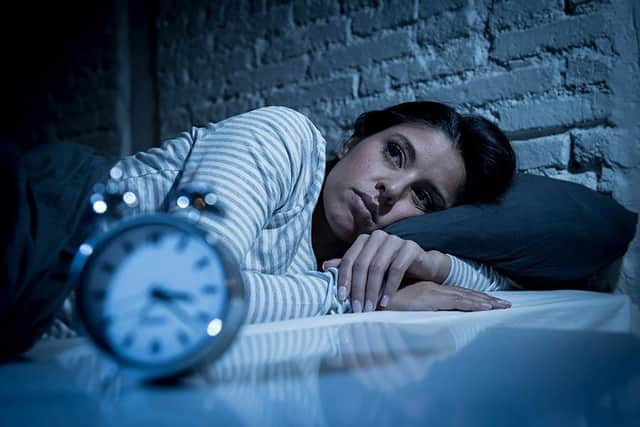Research reveals what keeps the nation up at night: namely tea, anxiety and day-time naps
This article contains affiliate links. We may earn a small commission on items purchased through this article, but that does not affect our editorial judgement.
and live on Freeview channel 276
Insomnia can impact anyone of any age and is commonly defined as regularly having trouble getting to sleep and staying asleep. While lots of people may have the occasional sleepless night, struggling to get to sleep quite often is a good indicator of insomnia – in fact, it impacts one in three people in the UK.
The data shows that many people in the UK turn to Twitter to voice their frustrations with insomnia – online pharmacy Chemist4U analysed over 250,000 tweets over a 12-month period, that’s roughly 685 tweets about insomnia per day.
Advertisement
Hide AdAdvertisement
Hide AdThe most common causes of insomnia are tea (11.8%), anxiety (9.6%) and day-time napping (9.5%).


With a cup of tea being a staple drink in many UK households, it seems consuming this caffeinated drink too late in the day could be a top cause of insomnia. In fact, the recommended cut-off time for caffeine use is a minimum of six hours before bedtime.
Almost one in 10 insomnia tweets mention anxiety as keeping them awake – for the 8 million people in the UK suffering from anxiety, their adrenaline levels are constantly running higher than ‘normal’, which causes restless nights and leads to insomnia.
Napping is the third cause of insomnia – an increase in the number of people working from home may have led to this common problem, as a recent study revealed Britons are enjoying three power naps across their working week at home. Naps are said to worsen insomnia or poor sleep quality, especially when taken later in the evening, as this will disrupt your ability to fall asleep at bedtime.
Advertisement
Hide AdAdvertisement
Hide AdThe most popular ways the public tries to tackle insomnia are through use of melatonin which can be bought in tablet form (45.9%), a CBD product such as oil (17.6%) or through use of a sleep aid (15.2%). Sleeping tablets should be considered the last resort.
Ian Budd, clinical lead and prescribing pharmacist at Chemist4U comments: “We’ve all experienced a sleepless night and know how annoying it can be. But if you’re regularly having trouble getting to sleep, you could be suffering from insomnia. Another indicator is how you feel during the day. If you feel exhausted and are stumbling through your day like a zombie with a migraine, then it’s likely you need to make some lifestyle changes to help address your sleep cycle.
“The data revealed that most insomnia tweets were sent at 2am, indicating that those who are suffering aren’t falling asleep until well into the middle of the night, which could be why a lot of people turn to aids such as melatonin.
“Melatonin can be found in a medicine called circadin. If you’ve been struggling with your sleep cycle for a while, it’s likely you know that melatonin is a natural chemical in the body that helps you to fall asleep. But, make sure you know what you’re getting into before you pick up your prescription, as circadin can have unpleasant side effects.”